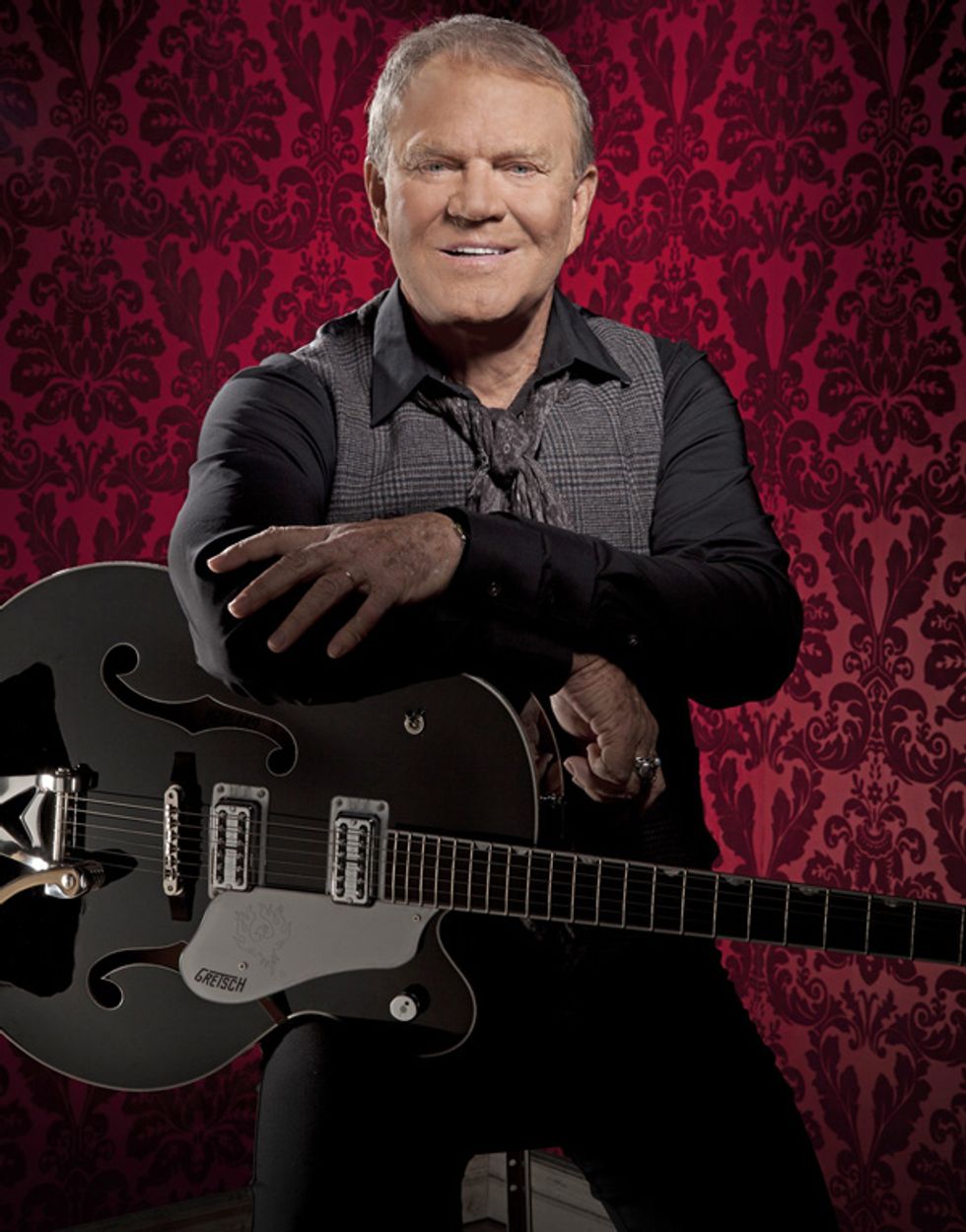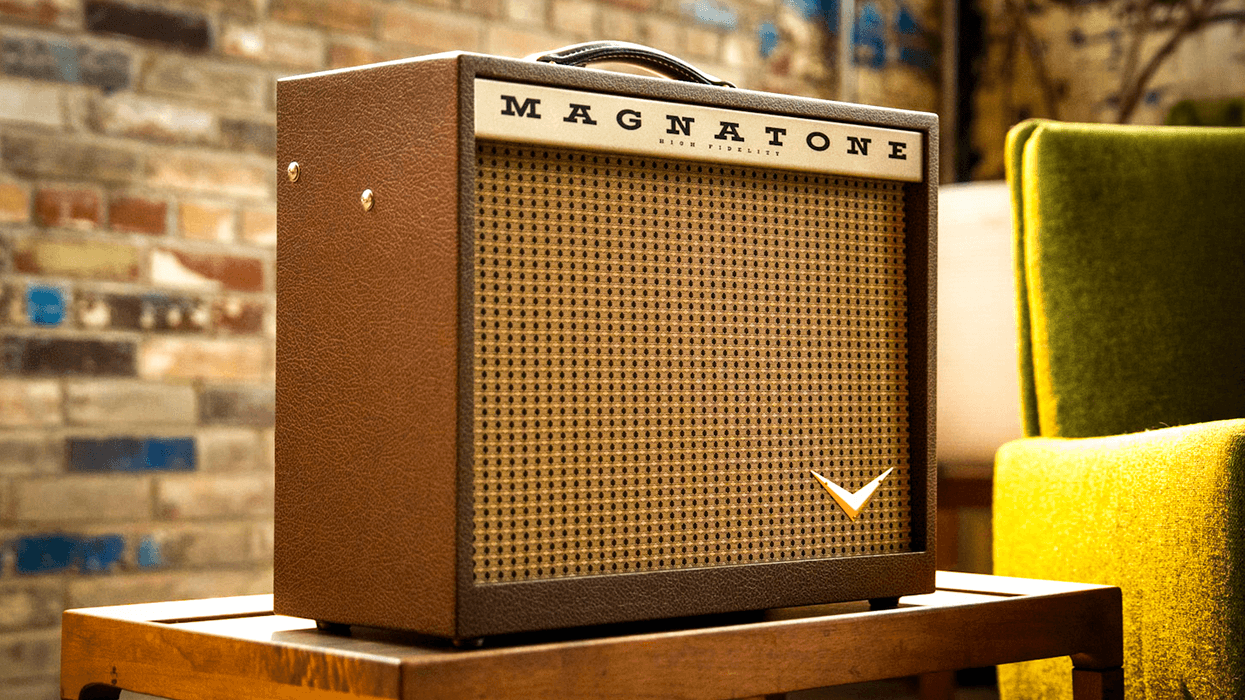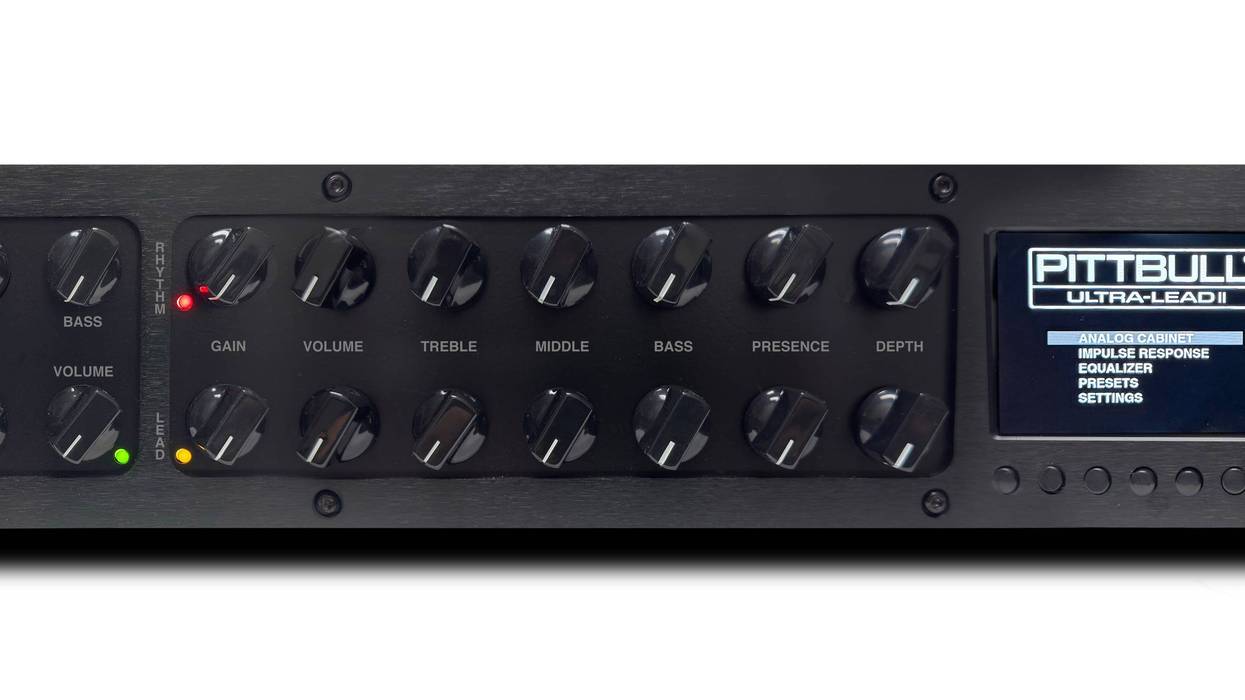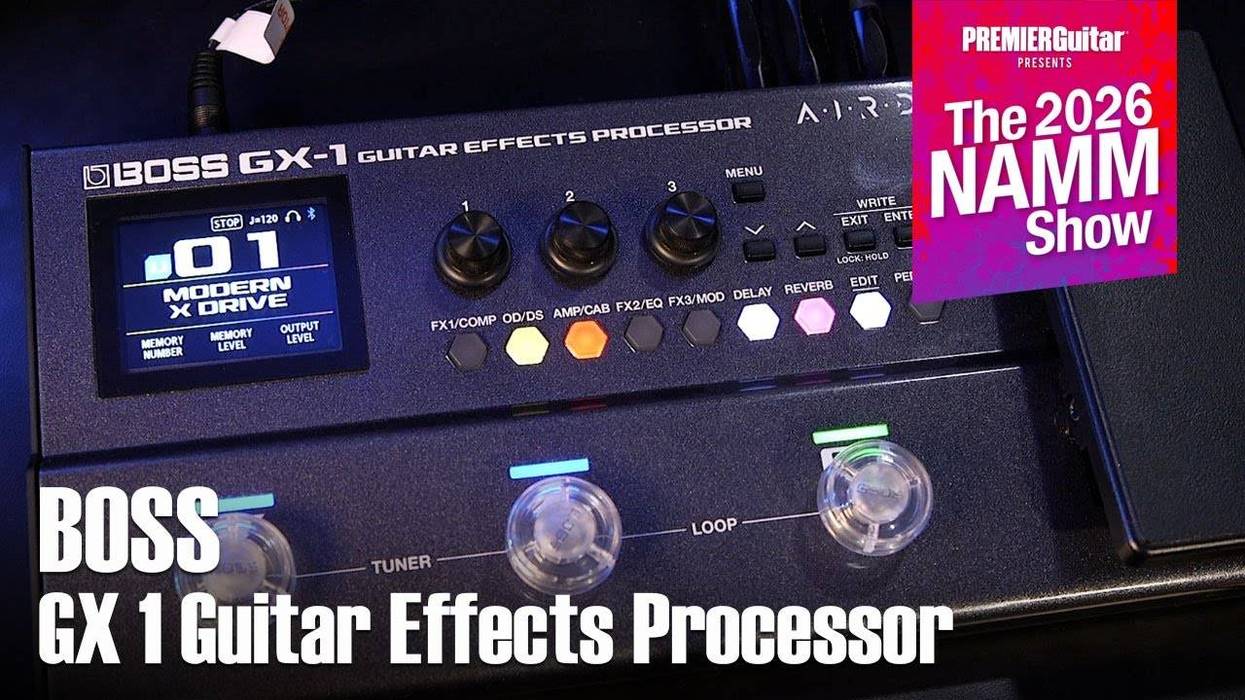Early in his career, Glen Campbell’s guitar wizardry made him an integral part of L.A.’s famed yet largely anonymous group of studio players called the Wrecking Crew. And then his sparklingly clear tenor voice, affable personality, and crossover appeal earned him worldwide recognition as one of the more influential musical artists of the latter half of the 20th century. Campbell died in Nashville on Tuesday, August 8, after battling Alzheimer’s disease, which he was diagnosed with in 2011. He was 81.
Born in the tiny Billstown community near Delight, Arkansas, in 1936, Glen Travis Campbell was the seventh son (of a seventh son) in a family of 12 children. His father was a sharecropper and his extended family also included several musicians. At age 4, Campbell received his first guitar. “I took it over immediately, even though the strings were kind of high on it,” Campbell told Branson’s Review in 2002. “The guitar didn’t have an adjustable neck to lower the strings, so Dad made me a capo out of a piece of old inner tube and I could now play higher-up on the guitar’s neck without hurting my fingers.”
After dropping out of high school, Campbell briefly relocated to Casper, Wyoming, to play in a nightclub with his uncle, Eugene, whom the family called “Boo.” A stint in Albuquerque followed in 1956, with the Sandia Mountain Boys—the band of another of his uncles, Dick Bills. Two years later, Campbell formed the Western Wranglers. By 1960 he had disbanded that group and moved to Los Angeles, making $100 a week touring with the Champs, the instrumental outfit whose “Tequila” had been a 1958 smash.
Campbell and his Epiphone Zephyr Deluxe were soon featured on countless studio recordings, and he also had a regular gig at the Crossbow Inn in L.A.’s Panorama City neighborhood. He played rhythm guitar on “Travelin’ Man” for Ricky Nelson, Jan and Dean’s “Surf City,” and the Elvis Presley soundtrack hit “Viva Las Vegas.”
Having played acoustic guitar on the 1963 recording session for the Beach Boys’ “Be True to Your School,” Campbell filled in for Brian Wilson as a member of the group’s touring band a year later. Around that time, he was featured on what would become Dean Martin’s signature hit, “Everybody Loves Somebody.” In 1964, Campbell, piano player Leon Russell, and Wrecking Crew bassist Larry Knechtel joined the house band of the ABC television music series Shindig!, which also included James Burton and Delaney Bramlett on guitars, and keyboard player Billy Preston.
Campbell’s exhaustive session work continued, with his distinctive guitar appearing on the records of everyone from Frank Sinatra to Nat “King” Cole to the Righteous Brothers to the Monkees. He later recalled, however, that not everything he played on was successful, noting that of the more than 500 sessions he participated in one year, only three songs were bona fide hits.

Glen Campbell cradles a Gretsch circa 2011. After he made his diagnosis of Alzheimer’s disease public, he embarked on his “Goodbye Tour” and recorded the recently released Adiós album.
Campbell also recording and writing songs for the American Music publishing company. And in 1961 he made his Billboard chart debut as an artist with “Turn Around, Look at Me,” a tune written by Jerry Capehart and released as a 45 on Crest Records. It reached only No. 62. But when his string of Top 40 hits began in 1966, it was estimable. His initial run of smash records includes John Hartford’s “Gentle on My Mind” and the Jimmy Webb-penned classics “Wichita Lineman,” “Galveston,” and “By the Time I Get to Phoenix.” Those three songs melded Webb’s intricate lyrics and challenging song structures with Campbell’s pristine vocals, set against the lush production and arrangements of studio master Al De Lory.
Webb’s admittedly sentimental stories vividly captured solitude in “Wichita Lineman” and conveyed fear and uncertainty in the Vietnam-era “Galveston.” Both songs featured Campbell’s Fender Bass VI playing in their instrumental breaks, with the solo on “Wichita Lineman” standing out as a shining example of his artistry. He made Grammy history in 1967 by winning four awards: two each in the categories of pop and country. In total, Campbell earned 10 Grammys, including three Hall of Fame Awards and a Lifetime Achievement Award, and was the Country Music Association’s Entertainer of the Year in 1968.
After serving as host of a summer replacement series for The Smothers Brothers Comedy Hour on CBS in 1968, Campbell was offered the opportunity to host his own variety show. Debuting in January 1969 and running until 1972, The Glen Campbell Goodtime Hour shone a spotlight on the guitarist and his talented musician friends, including guitarist Jerry Reed, John Hartford, and bluegrass banjo player Doug Dillard. The “Pickin’ Pit” segment, like the show itself, exposed viewers to a wide range of musical genres week after week. In addition to his TV work, Campbell starred in the films Norwood and True Grit, earning a Golden Globe nomination as Most Promising Newcomer – Male for the latter in 1970.
With a strong foothold in both country and pop, Campbell embarked on live performances all over the world through the next several decades. He continued to sharpen his guitar skills and inspire many younger players, especially within country music, with Vince Gill, Keith Urban, and Brad Paisley among those who acknowledge their debt to him.
Campbell’s post-TV-show run as a hit-making artist proved arguably even more impactful, as he scored a pair of No. 1 pop records with the star-spangled “Rhinestone Cowboy” and his breezy take on New Orleans songwriter Allen Toussaint’s “Southern Nights,” in 1975 and 1977, respectively. Despite an increasingly public battle with substance abuse, Campbell remained an in-demand live performer into the late ’90s—especially at his own Goodtime Theatre in Branson, Missouri.
YouTube It
While many of Glen Campbell’s late-’60s and early ’70s TV appearances were lip-synched—the norm at the time for network programs—he wields his own Fender Bass VI in this rendition of “Wichita Lineman” from The Smothers Brothers Comedy Hour, playing his classic melody solo.
In June 2011, Campbell went public with his Alzheimer’s disease diagnosis and embarked on his “Goodbye Tour,” captured in the poignant and powerful documentary Glen Campbell: I'll Be Me (2014). The film, with appearances from Paul McCartney, Bruce Springsteen, U2 guitarist the Edge, and more, followed Campbell’s journey as he and his family came to grips with the illness and shared his talent with fans one last time on the road. The film also featured the final song he recorded in his lifetime, telling family, friends, and fans “I’m Not Gonna Miss You” as he entered the final stages of the debilitating disease. Recorded with several of his fellow Wrecking Crew players, the tune, which was co-penned with producer Julian Raymond, received an Academy Award nomination for Best Original Song.
Campbell was elected into the Country Music Hall of Fame in 2005. His recording career was reinvigorated in 2008 when he covered the songs of Green Day, Travis, Foo Fighters, Lou Reed and more for an album titled Meet Glen Campbell. Among the noted guitarists contributing to that project were Rick Nielsen (Cheap Trick), Wendy Melvoin (Prince and the Revolution), and Todd Youth (Danzig). Campbell was the recipient of a Grammy Lifetime Achievement Award in 2012.
A full-length album of original material, the masterful Ghost on the Canvas, was released in 2011, just before his Alzheimer’s diagnosis. This June, Campbell’s final studio work, Adiós, was issued. The album, recorded simultaneously with Campbell’s “Goodbye Tour,” featured four tracks penned by Jimmy Webb, including the extraordinarily poignant title cut, and was produced by Campbell’s longtime friend and former band member, Carl Jackson.

















![Rig Rundown: Russian Circles’ Mike Sullivan [2025]](https://www.premierguitar.com/media-library/youtube.jpg?id=62303631&width=1245&height=700&quality=70&coordinates=0%2C0%2C0%2C0)
















![Rig Rundown: AFI [2025]](https://www.premierguitar.com/media-library/youtube.jpg?id=62064741&width=1245&height=700&quality=70&coordinates=0%2C0%2C0%2C0)











